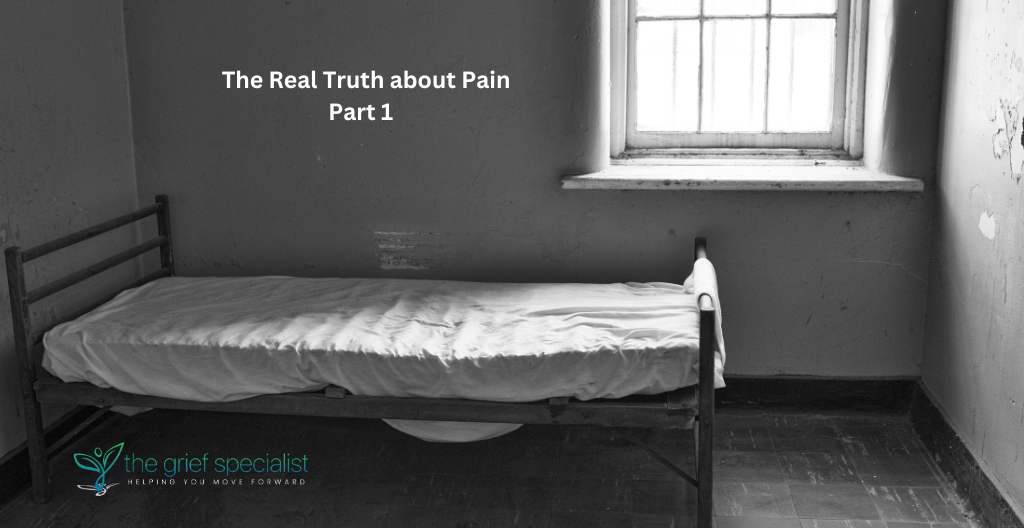“I can’t do this anymore. I’ve had it! How much more pain can I take?”
Is this you? Do you say this? Do you feel the same?
You are not alone. Have hope though. It does not have to be that way.
The cause of your mental and emotional pain can be from the loss of a loved one, intense distress, deep sorrow, or sadness.
In this two-part series, we will dive into mental pain with concrete steps to help you overcome it.
The truth about pain is that many people will spend more energy to avoid short-term pain than they will to gain short-term pleasure. My question to you is, why spend more energy on something that holds you back rather than moves you forward? Let’s focus on what is on the other side of the pain and stop suffering from something that you have control over.
Understand your pain.
It is an unpleasant psychological, non-physical origin. It is characterized as a perception of negative changes in the self and its function that is accompanied by strong negative feelings. It is a high degree of emotional pain, distress, torment, or suffering. While it may seem counter-intuitive, emotional pain is useful. It is vital to our beings as humans. If we don’t feel our pain, we can’t heal from it, possibly causing prolonged grief, isolation, depression, and even physical pain.
My story of pain
My emotional pain began over 30 years ago when my 9-month-old daughter died in a day care accident. It was a lonely journey. My friends did not know how to help me. There really wasn’t any help to move through child loss. The expectation was to get on with my life – quickly and get over the pain.
Eight years later my father passed away. We were extremely close. Then my sister who was my best friend. My mom passed years later who was my spiritual guide. In between the deaths of my family, I went through a difficult divorce, had multiple surgeries and financial difficulties.
My third child took his life a few years ago and my brother ended his just this year.
When people hear my story, they tell me that I have been through a lot. Yes, I have. It has been a journey with its ups and downs. I’ve learned a lot about myself and what it takes to move forward. The pain has been ugly, complicated, and messy.
When I looked back at my experiences and how I survived them, I realized that my understanding and knowledge of what it takes to get through a multitude of challenges will help others. I’ve identified 6 common types of emotional pain. This week I will cover loneliness, guilt, and grief. Next week I will cover shame, rejection, and physical pain.
1. Loneliness
It is easy to get caught up in thinking that no-one understands what you are going through therefor it isn’t worth spending time with anyone. You might ask yourself “Why do I want to waste my time?” When you go down that path, you will find yourself pushing people away who truly want to help or be your friend. Sometimes it is necessary to get out of your own way and be open to possibilities of new friendships.
I love using the following strategy when my clients tell me they are lonely.
For the next 4 weeks, find 2-3 activities per week that require purchasing tickets. Buy at least 2 tickets to each event. This way you have invested financially and are less likely to cancel. Invite an old friend or someone who you would like to spend more time with to go with you. This gets you out of the house and surrounded by other people. It also gives you something to look forward to and doing something you enjoy.
2. Guilt
Guilt comes from within us. It involves negative evaluations of the self, feelings of failure and distress. We can feel guilty if we do something to someone that goes against our values or feel that our own life is good when others are suffering. Feeling guilty does not help you. It is important to recognize if you are experiencing guilt. What you do with it is vital. If you have wronged another person, take ownership of your wrongdoings. An apology is a great place to start. There are many ways to do so. If they are living, apologize in person. If that is not feasible, make a phone call or write a letter. If the wronged person is no longer with us, it is still essential to apologize. An apology is not just for the other person. It releases you of your guilt and frees up space for good and positive things.
3. Grief
Grief and loss are universal. At some point in our lives, we all have to deal with it. We never “get over” our loss, however the pain diminishes. Grief is the pain of losing something or someone we loved: a friend or family member, a relationship, job, or beloved pet. For most of us, we were never taught how to grieve, society expects us to be normal within a short period of time and we feel lonely and isolated. Unresolved grief can lead to mental health disorders, and physical pain. It is important to face the pain, and work through it. Connect with a community that will help you through this difficult time. Reach out for support from friends and family or a professional such as myself.
Because I have experienced many losses and understand your pain, I give away 2 coaching sessions to anyone who needs an extra boost. Click here to schedule your 2 sessions. https://www.theegriefspecialist.com
So far, we have covered what pain is, that people do everything in their power to avoid pain and 3 of 6 types of emotional pain.
Watch for next weeks Thursday Thoughts for “The real truth about pain – Part 2.”
Never miss a Thursday Thoughts. Sign up to receive it in your inbox every week. Registration is at the bottom of the page… Home – The Grief Specialist
#loneliness
#guilt
#grief
#emotionalpain
#shame
#rejection
#physical
#wehelpyoumoveforward




